Top Ten of 2008 (Finished!)
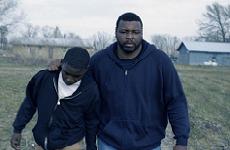 #10: BALLAST
#10: BALLASTA patient, carefully paced, and unusually structured chronicle of grief, vulnerability, and tentative movements toward new life in the gorgeous, overcast, water-logged lowlands of Mississippi. Debut filmmaker Lance Hammer guides his actors through subtle, specific, and resonant performances, and his handling of tone, landscape, and atmosphere avoid most of the clichés of the meditative, region-specific American indie. Illuminating and sad, in eccentric and interestingly qualified ways. I couldn't even say whether the three pivotal relationships in the film had become more or less legible to me by the end of the film, and that's all to the credit of Hammer and his cast of unknowns. Many reviewers reached for Dardenne comparisons; I thought first of David Gordon Green, but leaving aside the easy reflex of comparison, Ballast felt fresh and wonderfully cared for. Even its dangling threads were more interesting than a lot of movies' dramatic cores.
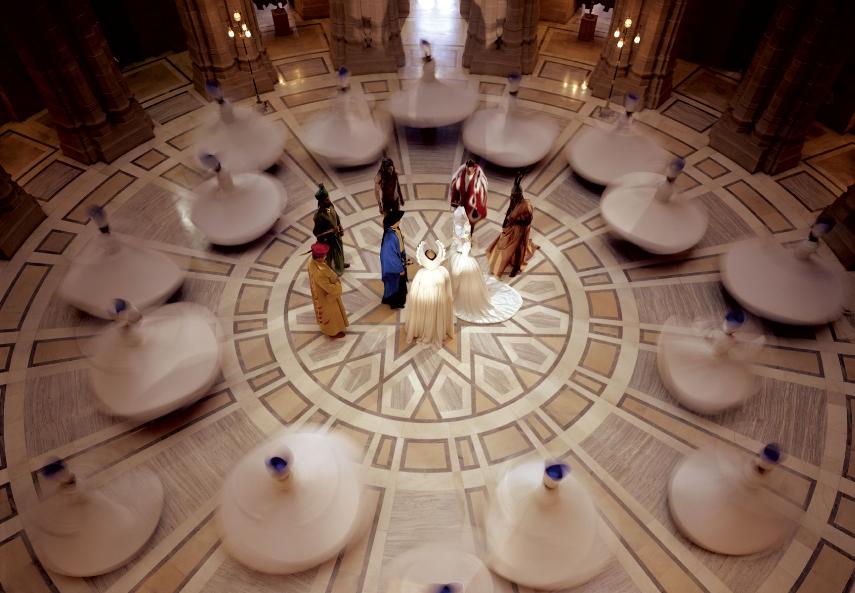 #9: THE FALL
#9: THE FALLEight years was a long time to wait after Tarsem's florid, overweening, but brilliant debut picture The Cell, and it took The Fall almost two years to make the leap from the 2006 Toronto Film Festival lineup into a modest theatrical run. Strong word of mouth kept it in arthouses for a couple of months, but I'm still counting on DVD to introduce more viewers to the peculiar, crazy-quilt, consummately spectacular pleasures of Tarsem's imagination. For once, the framing device of a storytelling film is as eccentric and complicated as the unfolding, frankly erratic fantasia that an injured stuntman is improvising for the precocious foreign-born girl (a priceless Catinca Untaru) who restlessly bums around his hospital bed. Like The Fountain, The Fall is full of stuff that would have worked better with more money and a more seasoned filmmaker at the helm, but the mad sincerity and gorgeous, strange, hyperbolic visuals that make both movies special are exactly what an older pro might not have allowed. The finale is one of the formal and emotional show-stoppers of the year.
 #8: SAVAGE GRACE
#8: SAVAGE GRACEAnother movie that will need DVD devotees, and though I certainly wish it the best on Netflix, Savage Grace needs the big screen almost as much as The Fall does—possibly more. Tom Kalin, who's been missing from movie theaters even longer than Tarsem has, rejects a tamed narrative or linear psychologies in exchange for a more expressive, diagonal, overpowering impression of the perverse realities behind one family's tabloid-ready meltdown. With an archly mannered script, colors and backdrops as furious as those in Contempt, and a brave commitment to razor-sharp edits that throw off the predicted rhythms of almost every scene, Savage Grace captures the eerie, almost deoxygenated world of vulgar wealth, but the movie isn't just a screed against the upper classes. The boredom and driftlessness of the characters are actually poignant, and Kalin and his actors manage a remarkable, discomfiting empathy for the incestuous sexual triangle that for a brief spell brings some joy to Julianne Moore's colorfully gauche mother and to Eddie Redmayne's unnervingly stunted son. A jagged object that does excellent work with image, sound, rhythm, and high theatrics, at a time when many films are only ambitious, much less successful, in one or two of these areas.
 IN THE WINGS: JOHNNY MAD DOG
IN THE WINGS: JOHNNY MAD DOGOne of the best as-yet unreleased movies I saw in 2008 was this furious, terrifying immersion in the tumultuous, trigger-happy world of African child soldiers, with generous cross-cuts to the watchful, heartbreaking efforts of one lonely girl to keep her family safe from these roving, murderous platoons; even worse than dying at their hands would be for her brother or herself to be impressed into service. Jean-Stéphane Sauvaire's bracing, inevitably confrontational movie made enough waves at Cannes that sooner or later I assume some U.S. distributor will pick it up, at which point I take for granted that all the Stateside reviews will call this Liberia's answer to City of God. I think Johnny Mad Dog is much less familiar in its dramaturgy and more careful about not getting off on the violence or the charisma of its no-rules criminals. If the film had already premiered on U.S. screens in 2008, it would enter the list at this rung.
 #7: RACHEL GETTING MARRIED
#7: RACHEL GETTING MARRIEDA better Mike Leigh movie than Mike Leigh made in 2008 (Happy-Go-Lucky is a plum, but predictable and slight), a more controlled and consistent dysfunctional holiday drama than the fantastic one Arnaud Desplechin made in 2008 (that would be A Christmas Tale), and the best thing Jonathan Demme has pulled out of the bag since the cuckoo-glorious days of Something Wild and Married to the Mob, with all due respect to the spooky menace and genius performances in Silence of the Lambs. As the years pass, that movie looks a little too storyboarded and squatted at some awkward, overly formal distance from what it's delving into, whereas Rachel, even at the expense of some early, fumbling experiments in DIY photography, keeps in splendid, tetchy, furious, and musical step with its fractious family. Bill Irwin's emotional father, in the film's oddest and perhaps its best performance, and Jonathan Demme, as resident wedding planner and musical curator, both do a brilliant if occasionally desperate and self-indulgent job of holding the whole messy affair together, mediating among the vivid and competing parts and forcing the most estranged characters and dissimilar actors to come together. Whether Irwin's character ultimately succeeds is highly debatable; that Demme succeeds is beyond question, especially if you're clocking Anne Hathaway's high-wire impersonation of sparkling self-destruction or Rosemarie DeWitt's agile and thoughtful handling of the wounded and narcissistic Rachel, a character who's as easy to love and to resent as Hathaway's wide-eyed rehab fugitive. Somehow the actors don't get swallowed by the colorful staging and mise-en-scène, and the performances don't all boil down to any single scene or revelation. Not everything works perfectly, but all of it works plenty well, and it's a fantastically living piece of work.
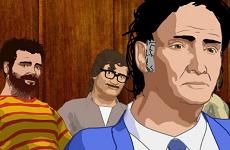 #6: CHICAGO 10
#6: CHICAGO 10In a year where Ari Folman's Waltz with Bashir drew headlines and top prizes for its unusual experiments with animated documentary, Brett Morgen's Chicago 10 worked a similiar aesthetic gambit for even more bracing results. One wouldn't call the flat, often stiff rotoscope animation of the jury-trial sequences a major technical advance, but these scenes do have the vivid, sharp feel of a graphic novel, plus the fizzy humor and compulsive watchability that precious few graphic-novel adaptations have actually managed. That the disorderly squabbling of lawyers, the vicious pronouncements from the bench, and the outraged jokester antics of the famous defendants are all drawn from actual court transcripts makes these sequences historically informative, rather than simply a punchy way of retelling history, and of doing so in a populist, frankly reductionist mode that Abbie Hoffman, Jerry Rubin, and their comrades probably would have relished. A major strength of Chicago 10 is that, in willfully disavowing a fuller picture of the DNC convention or the wider, global contexts of 1968 protest movements, it wonderfully evokes the mix of righteousness, idealism, and myopic insolence that typified the protesters. But even that achievement is nothing compared to the eye-opening archival footage of the sit-ins, concerts, marches, protests, and police attacks in Grant Park, Lincoln Park, and Michigan Avenue, making Chicago 10 the rare American movie to remind us that concerted, principled, and dangerous political protest has taken many forms in recent American history, under-taught and poorly remembered though they are. Morgen edits and scores his movie fabulously, keeping a firm hold on color, motion, and tension in his frames and his sequence-structures, and mixing 60s-era music with modern influences (Rage Against the Machine, Eminem) that resonate uncannily well with what we're seeing—some of us for the first time.
 #5: THE WRESTLER
#5: THE WRESTLERThe Wrestler is recognizable as a Darren Aronofsky movie: he prefers a tiny but tightly woven ensemble, enjoys the symbols and ethics of a subculture, and adores keeping the fronts and backs of heads in the dead-center of his frames. Probably everyone on screen would nod their heads at the wisdom of Hubert Selby Jr. if given the chance, and they can all see death coming in one form or another: old age, middle age, dead-end jobs, obsolescence, ruinous relationships you can't get away from. But The Wrestler is just as surely a new maneuver for Aronofsky, imbued with a liveliness in the moment that he's never attempted, plus a warmth that was missing from the first two films and was hyperbolized as era-spanning and interplanetary eros in The Fountain. The Wrestler even accommodates a casual humor that neither the scripts nor the actors of Aronofsky's previous projects have been permitted to access for more than split-seconds at a time. He's certainly never directed a performance as rounded and textured as Mickey Rourke's, which lights up every filament in the role and the story as scripted but also plays against the screenplay's tendencies toward the maudlin and the overdetermined (and you could say exactly the same for Marisa Tomei, in her smaller role as Cassidy/Pam). The Wrestler has the ritual force of the inevitable as well as the moment-to-moment aura of truth, surprise, and unprejudiced observation.
 #4: UP THE YANGTZE
#4: UP THE YANGTZEThe opening narration and the grey, low-tech images of Up the Yangtze might imply that what's to follow is yet another traveling-liberal documentary where the suffering of a place and a people is lamented by a temporary resident whose good-faith effort to connect with the hurting crowds never quite translates into a palpable connection with his or her subjects, much less a convincingly cinematic experience. But Up the Yangtze not only accounts for its smoggy, silty visuals quite early, but it insinuates itself right into the lives of two Chinese students who, for different reasons and with very different spirits, find themselves working on a luxury yacht from which Western tourists can witness the deterioration of a prodigious landscape and an enormous human community. Crucially, director Yung Chang is unwilling to scapegoat the tourists or their expendable incomes, and nor is he willing to go easy on the sulky young girl or the handsome, cocky boy who are the principal subjects of the film. Meanwhile, Chang avoids the pitfalls of documentaries like Born into Brothels that connect us empathetically to distressed children by limiting our attention or our compassion for their parents; the story of the young girl's family to literally stay afloat as the Yangtze waters rise around their cottage is as detailed and memorable as the precise, exhaustive record of life on the cruise ship. By the time we reach the final, poetic image, the contradictions and nuances of a massive political and ecological predicament have been admirably portrayed for us, as have the emotions and worldviews of a population who are rarely evoked with more than the broadest strokes in popular journalism.
 #3: HUNGER
#3: HUNGERWith almost every reel, the acclaimed visual artist Steve McQueen sets himself yet another huge, unusual challenge. How to commence with a simple image of a man washing and soothing the blisters on his knuckles, or grabbing a cigarette break outside of his workplace, and proceed to a shocking contextualization of how he got those blisters and why he needs that break. How to structure the first half-hour of a feature-length film as a coherent one-act that, left to its own merits, would win every short-film prize around. How to begin a film about a lionized martyr with a disarmingly sympathetic portrait of one of his oppressors. How to extrapolate the life of a political prisoner from the carefully rendered light, sounds, objects, and bodies in the jail, rather than leaning on captions or dialogue or cant. How to introduce your central figure so that the audience barely notices he's arrived, well into the middle third of the movie. How to blur the line between torture and standard-issue incarceration, so that every viewer has to do her or his own work to assign a name to what they're seeing. How to stop the film for a two-person conversation with only two or three cuts permitted in a span of twelve or fifteen minutes. How to pick the movie back up from there. How to film dementia. How to film hallucination, how to risk any abstraction whatsoever in a film that's supposed to be rooted in the excruciating, embodied reality of a hunger-striker as he wastes away. Hunger's laggardly rollout on U.S. screens will probably keep it from being the dark-horse barnstormer of the arthouse box-office that I once believed it would surely be. But it's still one of the essential films of the last year, a ceaseless tester of its own ingenuity and almost always a glorious passer of its own high-caliber tests. Keep an eye out.
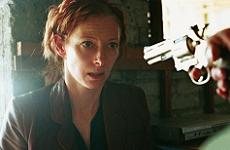 IN THE WINGS: JULIA
IN THE WINGS: JULIAWith apologies to Robert Herrick: Whenas in booze this Julia goes, / Then, then (methinks) how swiftly flows / Her entire world into a hot, steaming, scary pile of shit. // Next, when I cast mine eyes and see / That reckless sauce-hound approaching me / I can feel already my whole life swirling right down the toilet along with hers. Beautiful, right? Tilda Swinton's Julia, an aging and perpetually sozzled disco pig who fumbles and screeches her way out of a job and then into a kidnapping and then into a murder and then into some even bigger problems makes Anne Hathaway's Kym in Rachel Getting Married look like a good part for Sandra Dee. In a year where so many leading actresses revisited familiar character types or expanded their portfolio of work without necessarily elevating it, Swinton blasts merrily, frighteningly, lucidly, and almost poignantly against the screen, which buffets her right back with one of the twistiest, punchiest, most keyed-up plots that I've seen in years. Both the film and the performance keep the audience suspended in a fascinating place between repulsion and fascination, as though it's Julia's assigned duty to restore danger and discomfort to the narrative cinema. Many people I know who saw it in Europe or at American festivals complained that it's a half-hour too long, but I think the movie would work quite less well if it were truncated; watching Julia make comparable mistakes over and over again is part of what this blazing film is about, and so is the excruciating extension of having to figure out if you're rooting for her or not, and why. Erick Zonca, yet another filmmaker who resurfaced after a long AWOL period, is still searching for American distribution, but when Julia finally closes its mighty fist around a U.S. theatrical run, however small, I'll be taking all my friends to see it and perching it high, high, high on all of my year-end lists.
 #2: TROUBLE THE WATER
#2: TROUBLE THE WATERJames Marsh's Man on Wire is a splendid yarn and occasionally hits a sublime note of wonder, but I still can't figure out how it hoarded up all those critics-group prizes when Tia Lessin and Carl Deal's Trouble the Water was out there blowing the top off almost all journalistic coverage of Hurricane Katrina, surpassing even Spike Lee's formidable When the Levees Broke in its accumulation of complex characterization and articulate detail, and highlighting an angry silence in a historic election season that almost never gestured to the continued plight of New Orleans or to the highly preventable and hardly unique factors that sealed the city's fate. No one in recent memory, in a movie or in my life, has so irreverently cracked open the terrible vise of circumstances closing around her as Kimberly Rivers Roberts does when she scans her street of low-income home owners in the 9th Ward, sees who among her neighbors including herself and her husband have no prospects of fleeing before the storm hits, and breaks into an impromptu hook from Patti LaBelle and Michael McDonald's "On My Own." She keeps her neighbors laughing and makes them welcome, and we'd thrill to her equanimity and generosity if we didn't know what we do about what's coming, and if we weren't helplessly wondering who on screen may or may not have survived. Kim and her husband Scott are fascinating documentary subjects, not just because of what happens to them and how steadfastly and harrowingly they recorded their impressions but because they keep yielding new sides of their personalities—stoicism, sentimentality, wit, fury, obedience, pragmatism, critique, escapism, idealism, mutual support—as they confront the multiple ghosts of Katrina's past, present, and future. The filmmakers seize on the splendid multi-dimensionality of their subject-protagonists and structure their film as an unfolding account of one devastating urban cataclysm and of two unpredictable personalities. The storm is only the tip of the iceberg of what's wrong with American government and bureaucracy, but by the same token, Kim and Scott are only the most foregrounded figures of a human community that keeps astonishing us with its complexity. The backstories we accumulate about Kim and Scott and their growing circle are as intriguing and informative as their present-tense story of seeking shelter and sustenance. And if you've seen the movie, you know that Kim's direct-to-camera recital of her self-pinned hip-hop tract "Amazing" is the filmic catharsis of the year: outraged and optimistic, just like the movie, and equally ingenious at spinning the uncomfortable stuff of life into the vital rhythms and revelatory frameworks of art.
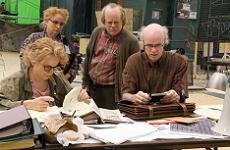 #1: SYNECDOCHE, NEW YORK
#1: SYNECDOCHE, NEW YORKThe still shots from Synecdoche, New York look tweedy and annoyingly under-budgeted, and the reviews from Cannes described a movie that had a lot on its mind but much less going on in its aesthetic skill set; I can't say that I approached the movie with much in the way of enthusiasm. But Synecdoche's ridiculously ambitious structure starts paying huge emotional dividends very early, condensing any number of plots that might have propelled a shorter, easier, but interesting movie into a few quickly skirted scenes that somehow don't skimp on the potency of feeling between an aloof husband and the half-interested wife who sort of flees for her life (Philip Seymour Hoffman and Catherine Keener), or between an abandoned man and the inappropriate younger partner to whom he can only bring disenchantment and unhappiness (Hoffman and Michelle Williams), or between the restless artist, neither a hack nor an unimpeachable talent, who holds an improbably admiring woman by his side as a sort of sure-thing consolation prize, and who often stares back at him as though she bluntly can't decide how she ended up giving her life to him (Hoffman and Samantha Morton). The actors all have to be flying at the top of their game—even as they're playing cramped, uncomfortable people in a film that insists on stylistic modesty—for these storylines to carry any weight or feeling, much less for them to fuel a metaphysical conceit that only Terry Gilliam on an unusually morose and self-scrutinizing day would seem likely to attempt. But Synecdoche seems prodigiously able to move in multiple directions and experiment with almost any idea, and still absorb its entire cast and their multiple, sad picaresques into an unfolding, disconsolate, but frequently humorous vision that coheres beautifully even when certain elements don't quite work in the way you sense Kaufman might want them to. For a movie that's as much about the sludginess and remoteness of creativity as it is about the windows and gardens provided by art, Synecdoche is disarmingly elegant, particularly in how much meaning it extracts from short moments and quiet, scrambled, or otherwise unusual angles of approach to its own story. It's also the only fiction film I saw in 2008 that I could imagine watching as a Criterion disc in ten years, puzzling over its obvious glories as well as its puzzling recesses and deliberate constipations, and reacting to all of them as sources of renewable wonder and reflection. It convinces me completely of its integrity and its instincts; it moved me profoundly and upset me not a little, though I laughed often and recognized myself and other people I know, in good and bad ways, all the way through it. I assumed I would see it a second time in theaters and planned on several days to do so, but I always wound up postponing the experience on purpose, both to savor the anticipation for longer and out of fear that I wasn't ready to withstand the intellectual and emotional claims of the piece, or wasn't ready to concede its faults in case they seemed more conspicuous or deleterious than they had in my first epiphanic, expansive, entranced experience of the movie. No need to rush back to the theater, I suppose, when I suspect to challenge and delight and worry myself with this movie for several years to come.
Labels: Awards 2008, Golden Globes

















12 Comments:
Such a great list - although I've barely seen any of them, damn international distribution! - although I particularly enjoyed the inclusion of Up the Yangtze, which was followed by the disheartening inclusion of Hunger, a movie I can't stand in the slightest.
Yay to these picks, and an especial love of your love for Savage Grace; a film which was underrated and dismissed far too easily early on in the year.
And can I just give a little shout-out to my favourite of Demme's movies; Melvin and Howard, which I also found Rachel Getting Married to be reminiscent of.
This was really exciting to read. I also loved HUNGER but opted to save it for 2009 since it didn't open in NYC.
i'm glad you didn't make us wait so long! ;)
@Glenn: What do you hate about Hunger? And one last time, it's been fun loving Up the Yangtze with you all through the year.
@Brooke: I'm thrilled that you've stayed so devout in the Savage Grace camp; and though I'm not a Melvin and Howard fan myself, I can certainly see the through-line.
@Nathaniel: I promise to at least finish this list, and quickly!
I have seen a grand total of one of those films. Yes, one single solitary movie [thank you, Savage Grace, for not making me out to be a total philistine]! But, to my credit, most of them never opened in my country, except for Hunger (which I really meant to go see, but kept putting off until it disappeared after a week. However, I do know that Up The Yangtze is available for me to rent [my parents watched it a few months ago, and raved about it to everyone they met] and two of them are opening in the next month, so hope is not lost.
From reading your write-ups, the film I'm most eager to see is definitely Trouble the Water.
So far, I've only seen one film on your Top 10 list (The Wrestler, which I loved for the reasons you mentioned and more) but thanks to this eloquently written list, I'm more excited than ever to check out these selections. Thank you for taking the time to write such a well-prepared and wonderfully unique piece.
And, just so you realize how much your lists are appreciated, I rented Day Night Day Night based on your recommendation a few months ago and I absolutely thought the world of it. It's not my usual forte (I love dialogue!) but I gave it a chance and it quietly blew me away.
An excellent list, full of unexpected greatness. I'm glad to see SAVAGE GRACE finally getting some recognition as something other than a camp curio--and the selection of BALLAST, HUNGER, and (especially) SYNECDOCHE are all fairly inspired.
@Catherine, DJH, and Chuck: I'm so glad you all appreciated the list. And it's great to hear that the Savage Grace cult is already out there making contact with each other. I had to bump that movie down just a smidge on second viewing (the characters' discomfort started to look like the actors' discomfort a few more times than I remembered, etc.), but I obviously still think it's a grand piece of work.
So glad to hear, too, about Trouble the Water rentals in the future and Day Night Day Night screenings in the recent past. Truly, it's really gratifying. Thanks for keeping up with these lists!
Nick, my review (not as well written as anything you would do, but such is life) pretty much explains why I don't like Hunger. I found it lacking in having anything to say that we didn't already know (Thatcher's rule was heartless? Why never!) and generally found myself not having any desire whatsoever to watch people defecate their pants and then smear it on a wall. I guess I'm just funny that way.
I should add that it was a joy to read your bit on RACHEL GETTING MARRIED. I am certain as I've ever been about a movie that 20 years down the line people will still care about this movie when the Slumdogs and Benjamin Buttons have faded.
I love this list, even when I don't love the films within it -- few people on the web can articulate their passions with such range and depth.
I wanted terribly to love "Rachel Getting Married." However, somewhere in the last third, I realized I was straining so hard to love it, I simply couldn't find any joy in the process. Maybe I need to revisit the film somewhere down the line -- which I would happily do for Rosemarie DeWitt's performance alone.
And I have nothing to add to spot-on evaluation of "Synecdoche, New York," except to say it's in the unusual position of being a film I both loved immediately, but STILL suspect will grow more on me with time.
So, The Wrestler opened yesterday and having gone to see it last night I want to thank you for mentioning Marisa Tomei in a positive light. I keep reading disparaging comments like "All she does is take her clothes off" and even one commenter saying he hated how she "exposed her body, but didn't expose her soul" or some such nonsense. I absolutely loved how she totally went against the grain of the "hooker with a heart of gold" archetype and allowed Pam/Cassidy to be vacuous at times, and distracted at others and then playful and yet again motherly. So many facets to that performance. It felt so real.
Post a Comment
<< Home